Martina Navratilova: ‘Learning multiple languages helped me on the court and in life’
Frustrated in her desire to learn the piano and unable to find anyone in her small Czech village to teach her English, Martina Navratilova sought out French and German lessons instead. Here, in an extract from a new book, the tennis superstar says the sport that made her name is a language too
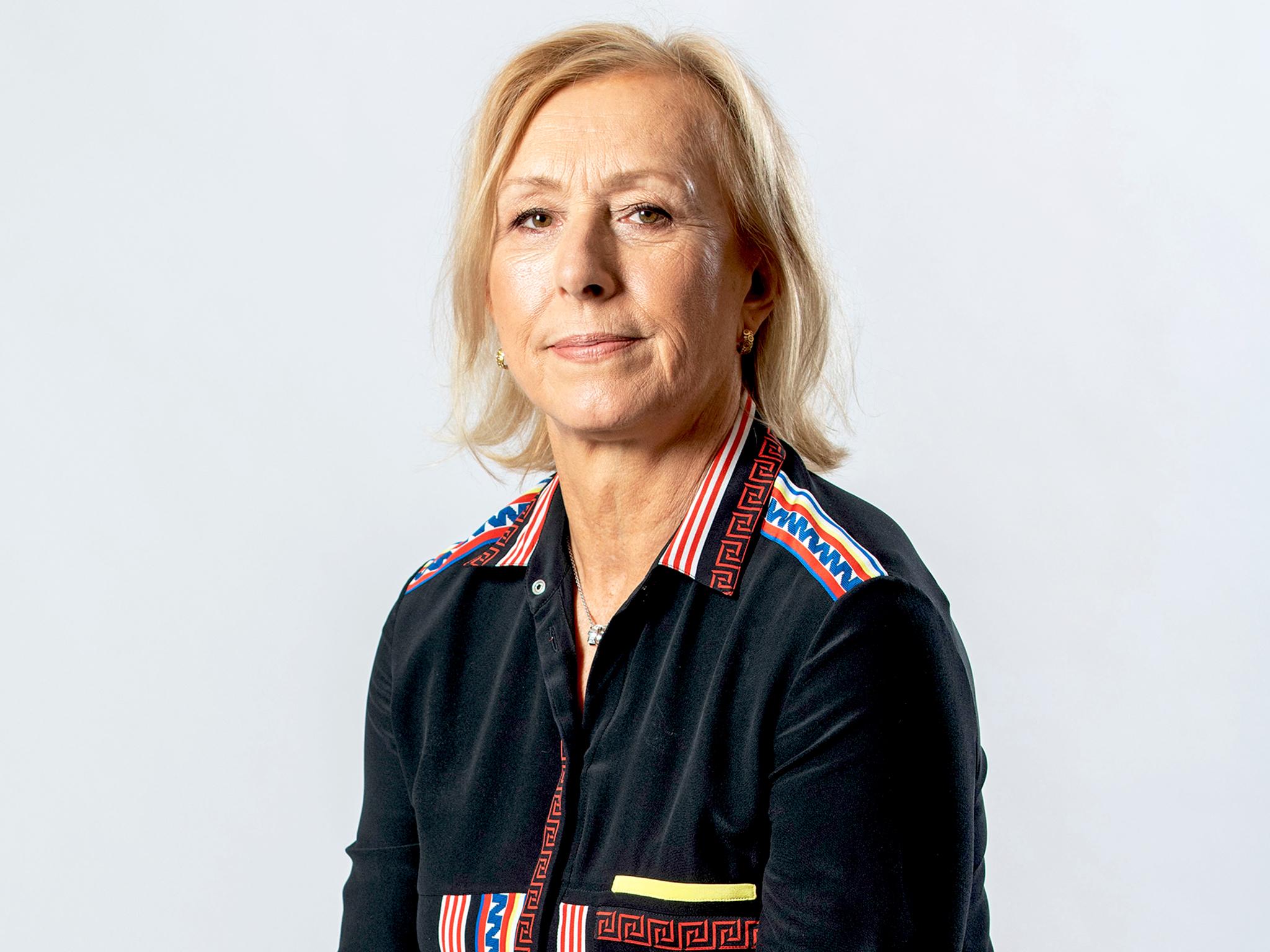
Two “passports” expanded my horizons, transformed my life and opened up the world: the game of tennis and languages. To learn a different language is to encounter a different logic, a different cadence, a different sequence of words. It prepares you to think differently and to adapt, and tennis is all about adapting, every point, every shot. You have to figure things out fast and react to instantly changing circumstances.
And strangely enough, I believe being left-handed, the odd one, has helped me with language and tennis. We lefties are more versatile. We have to flip everything, we have to learn how to flip the script. We learn to think sideways, on the court as well as in our speech.
Becoming multilingual has helped me so much. It has sharpened my brain and reflexes. Beyond tennis, I think speaking more than one language helps make you a better person too. With even just one other language, people broaden their horizons, they open themselves up by letting in a different way of communicating and thinking. And they naturally become more open-minded, less insular, about everything.
Tennis is very simple, but it’s complex at the same time, just like languages. You can know the words, but then you need to put them in a certain sequence, and that’s how it is when you’re playing a match. You can have all the strokes, but you need to put them in the right sequence and make the right choices and decisions quickly if you want to make an impact. It’s geometry too, and philosophy. People with different philosophies speak the same language differently, and it’s the same in tennis. Just think of my attacking, daring style and the cool, steady style of my great rival and friend, Chris Evert.
I was born in Prague but my family moved to Revnice when I was three. We all played tennis. You could say it was in the blood. My grandmother played top-level tennis in Czechoslovakia in the 1920s, and my mother and stepfather were my first coaches. We were always down at the court hitting balls. I wasn’t that great at first. I played with a huge racquet and was small for my age. But I loved it from the start.
Soon enough, tennis became my passion, but I sometimes wonder if I could have done something else. I was a very active child and interested in everything. I really wanted to play the piano, but with four of us living in a single room there was no space for one. It was easier for us to be outside. Then, by the time there was space for a piano, I was too busy playing tennis.
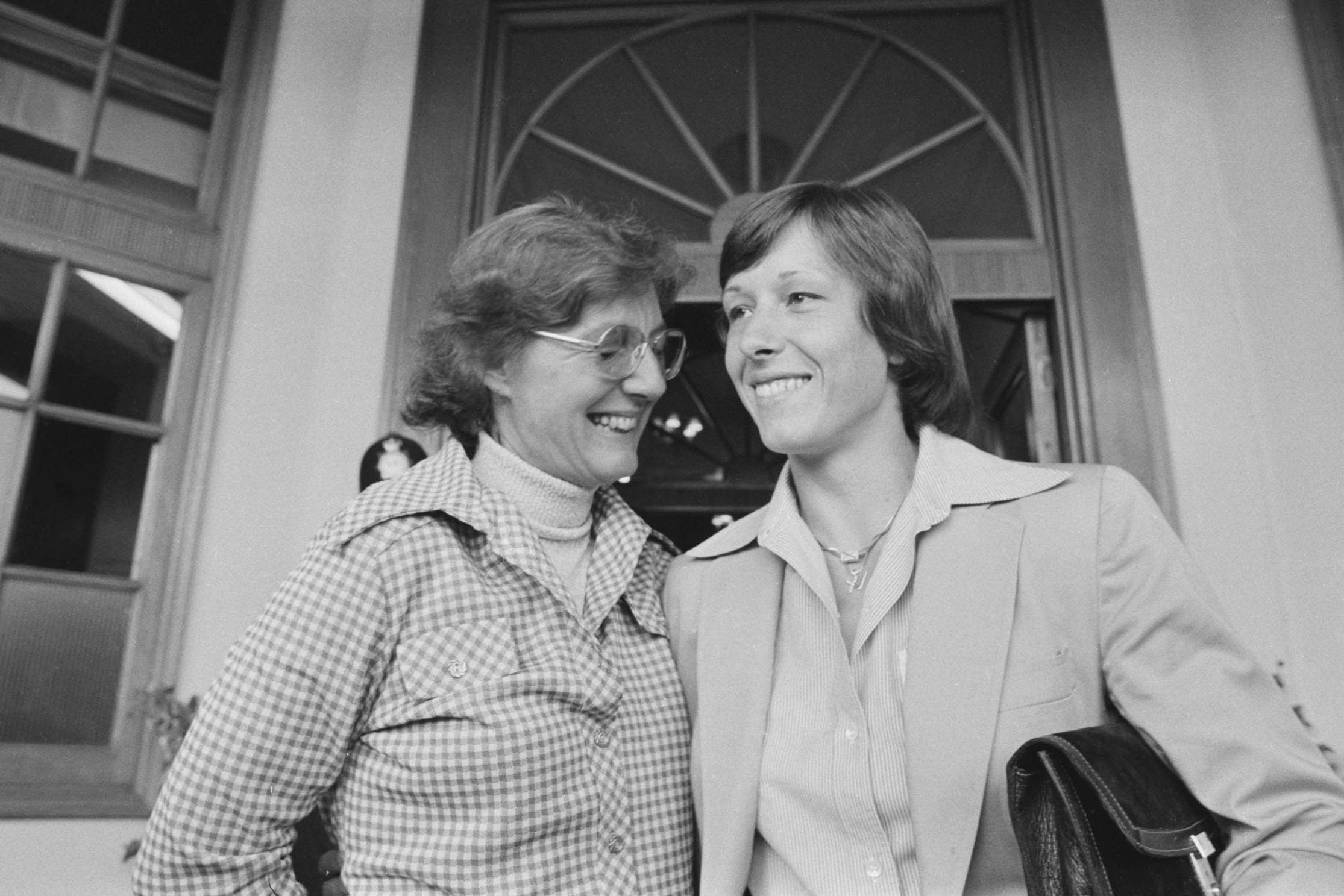
At school I was better than all the girls and most of the boys in running, jumping and throwing a ball. It all came easily to me, and because I was good at it, I worked at it, I wanted to do more. But I didn’t really grow until I was 14, which was when I first won in my age group. I didn’t care. I just loved sport. I’m sure I would have excelled at any fast-moving sport, like car-racing or skiing or basketball.
We weren’t a multilingual family, but we were aware of the presence and importance of other languages. It’s common enough in Europe, after all. My mother and grandmother both spoke German, and my mother spoke some English too. I always sensed that languages would help me spread my wings.
There was a lot of German about, because of the war, and we all had to learn Russian at school. I started learning the Russian azbuka (alphabet) when I was about 10 years old. I didn’t mind because I’d always been curious about other languages and keen to learn them. I wanted to take English, but they didn’t teach it at my school. There was a friend of mine who also wanted to learn, so we went around looking for someone who could help us outside school. But there was no one in our small village teaching English. Instead, we found someone who taught German, and ended up taking German lessons twice a week for three years.
It didn’t really matter that it wasn’t English. I was interested in languages for their own sake and later on I took French lessons outside school, too. For me, German and French were tuneful but not that useful, and Russian was mandatory but not useful at all. And French, I must admit, has always been a problem for me. The French are so perfectionist and precious about their language. When you try to speak it, they just answer in English.

Once, when I was well used to travelling around the world, I was in a bookstore near Fontainebleau that sold only comic books. Someone had told me that reading the adventures of Tintin was a good way to learn French.
So, I go to the guy and I say: “Excusez-moi, avez-vous Tintin?” He goes: “Pardon? So I say again: “Avez-vous Tintin?”
Nothing. He blanks me. Then this man standing next to me, who is French, says: “Avez-vous Tintin?” And the guy says: “Ah! Tintin! Yes, of course we have Tintin!” And I say: “That’s what I just said!” I think a lot of people can relate to that. In France, the only people who seemed happy about me trying to speak French were the Arabic-speaking cab drivers. We communicated just fine in French, accents and all.
From early on, I knew I would probably need English more than any other language, but I didn’t start learning it until I was 15, when I went to the local Gymnasium (high school). At that age it was compulsory, and in those days, it was the same curriculum and the same school books for the whole country. We did Latin at my Gymnasium too. I love Latin. It’s so complex, so logical. I wouldn’t say I have a photographic memory, but studying always came easily to me, and once I see something, I tend to remember it. Maybe it’s thanks to the Czech, which is also very complex. Czech is a Slavic language, with different verb endings and cases and genders, so maybe my brain was wired up for language learning from birth. English seems so simple by comparison. Except for the pronunciation, which doesn’t make any sense, just like in French.
When I speak different languages, I don’t feel like a different person. I think I adapt the languages to myself rather than the other way around
Mind you, when I first went to the United States in 1973, for two months, aged 16, I struggled to begin with. It was my entry into the tennis big-time, my first time on the tour. I had to think hard about it when somebody came up to me and said, “Hello, how are you?”. But in those two months, I picked up what seemed like three years’ worth of English. When you’re thrown in the deep end, you swim.
I was in regular school until the last two years, by which time I was travelling too much. Then I enrolled at what we called a school for working people, people who had jobs and couldn’t be there on a daily basis. I didn’t move permanently to the US until I was 19. By then my English was decent, and I practised by watching old TV shows like I Love Lucy, and the Dick Van Dyke shows and soap operas.
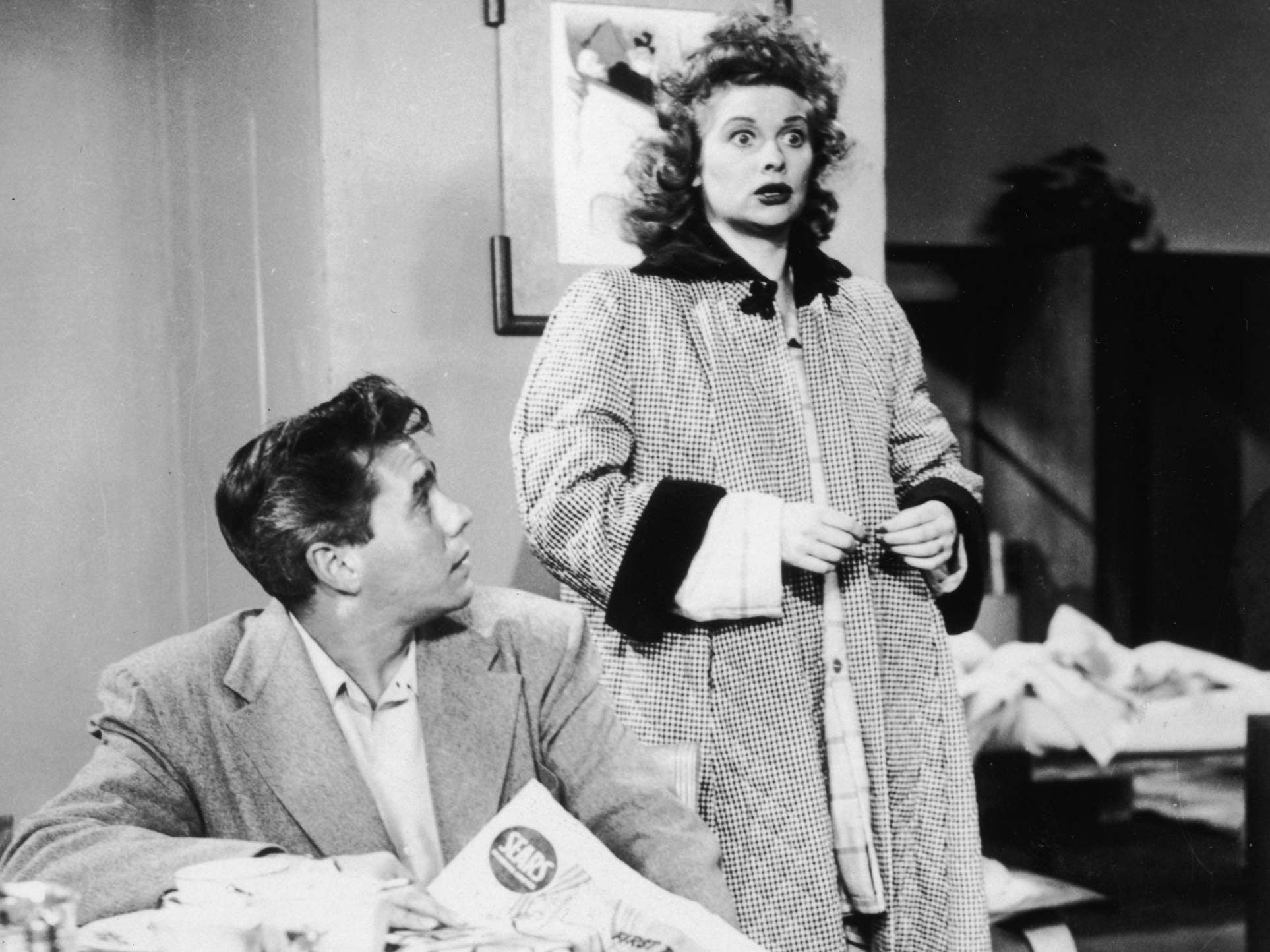
When I speak different languages, I don’t feel like a different person. I think I adapt the languages to myself rather than the other way around. I have the easiest time expressing myself in English, even though I started learning relatively late. I still speak Czech well, without any accent, but sometimes I’m searching for words, even having to translate them from English. The Czech language has changed so much in the last forty years, mainly because of developments in technology – they’re using more English words, but making them Czech.
I have a musical ear and can pick out a tune on any instrument just by hearing it. I taught myself to play the harmonica (a whole lot smaller than a piano) and how to strum a few basic chords on the guitar. So once someone has explained the basic principles, pronunciation is never a problem. Not even in Swedish. I can figure out a Swedish menu even though I don’t speak a word of Swedish. As for Italian, you don’t even have to study how to pronounce it. It’s just there in our history, like it’s built into our DNA.
I can order food in many languages, and I’m never afraid of making mistakes. Not that I don’t make them – I do. And not that I don’t want to get things right – I do. I don’t want to be pronouncing things wrongly. But it’s just like in tennis. When I make a mistake, I want someone to correct me, so I can keep getting better. I’m used to being coached and to striving for excellence.
I’m still as interested in other languages now as I was when I was 10 years old. The smallest thing can make me want to learn. When I was in Kenya, I taught myself enough Swahili to negotiate the price of mangos. I’ve forgotten it now, but I know I could pick it up again if I needed it. Most Kenyans not only speak their tribal language and Swahili but English as well – and we think we’re so sophisticated! Recently, I read a book by a Native American about his mother. In their language, which is dying out, they had a word for feeling melancholy but happy at the same time. They had one word for that! Oh God, it makes me want to learn that language right now! Imagine if we all learned one of those languages and helped save them from extinction.
Like most of us, I can understand more languages than I speak. Where I live in Miami, I hear Spanish all the time. It feels like I understand every word, but I can’t speak it, like my wife Julia can
Like most of us, I can understand more languages than I speak. Where I live in Miami, I hear Spanish all the time. It feels like I understand every word, but I can’t speak it, like my wife Julia can, so I’m planning on getting the Babbel app to catch up with her. Julia is Russian and speaks fluent French, but we speak to each other in English. It’s the same language, but two different people speaking it in two different ways. The way she expresses herself is really funky. She tells me she needs help writing her book in English and I say no, you need to write it, because nobody speaks the way you do. It’s different, and it’s fun that it’s different. I’d hate for us all to be the same. Our two girls speak Russian and French from her, and English from me. They laugh at my French though!
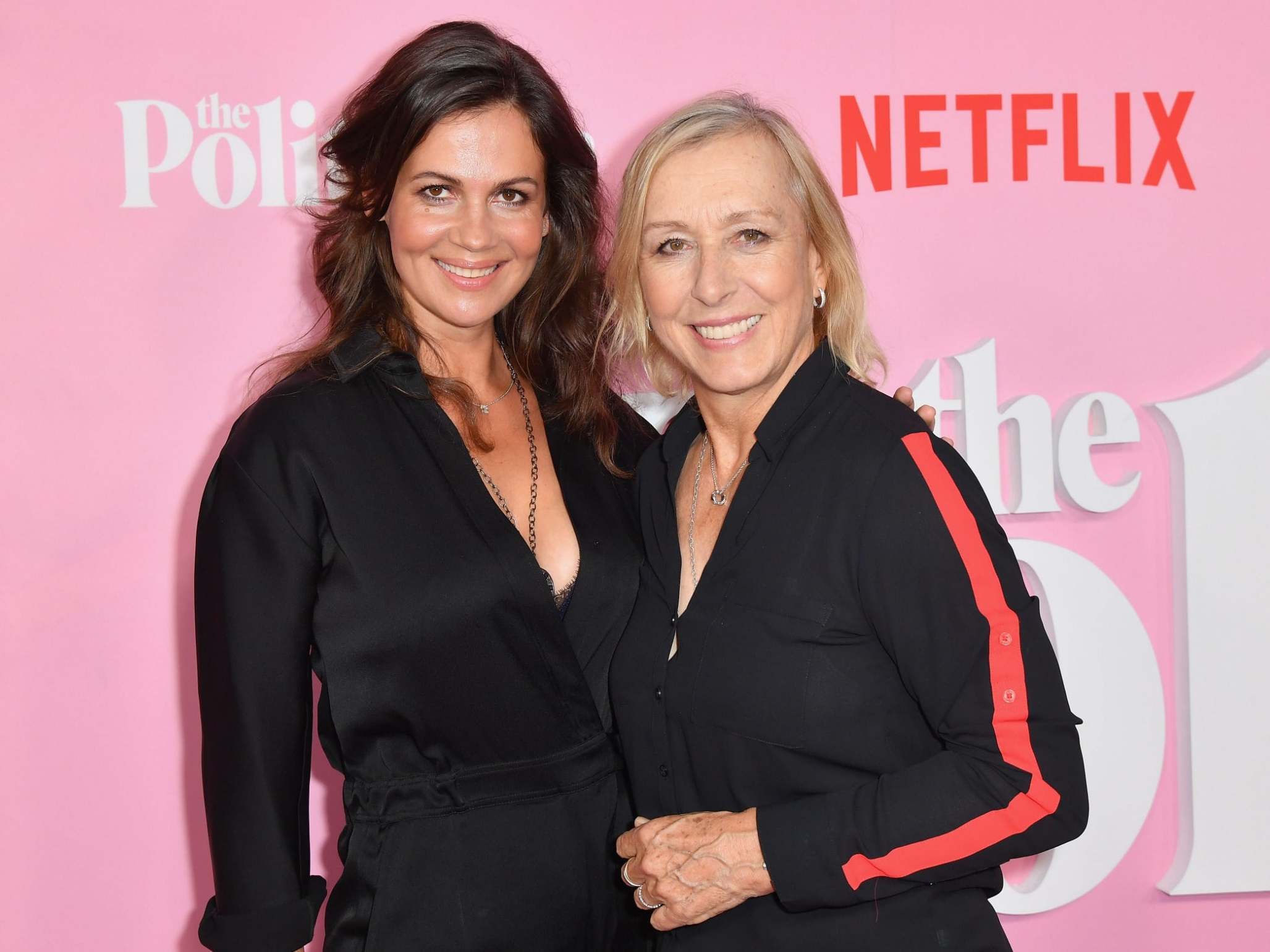
I read mostly in English, but my younger sister and I exchange books in Czech as well. Family is very important to me. Right now, my priority is to get our girls into college. They both play tennis, but they don’t love it, and there’s no way you can excel at tennis if you don’t love it. I just want them to do their best at whatever it is they love to do. Apart from that, and my work in tennis, I travel round the world giving speeches on women’s issues and women’s equality and LGBT+ rights and how to get to the top and stay there.
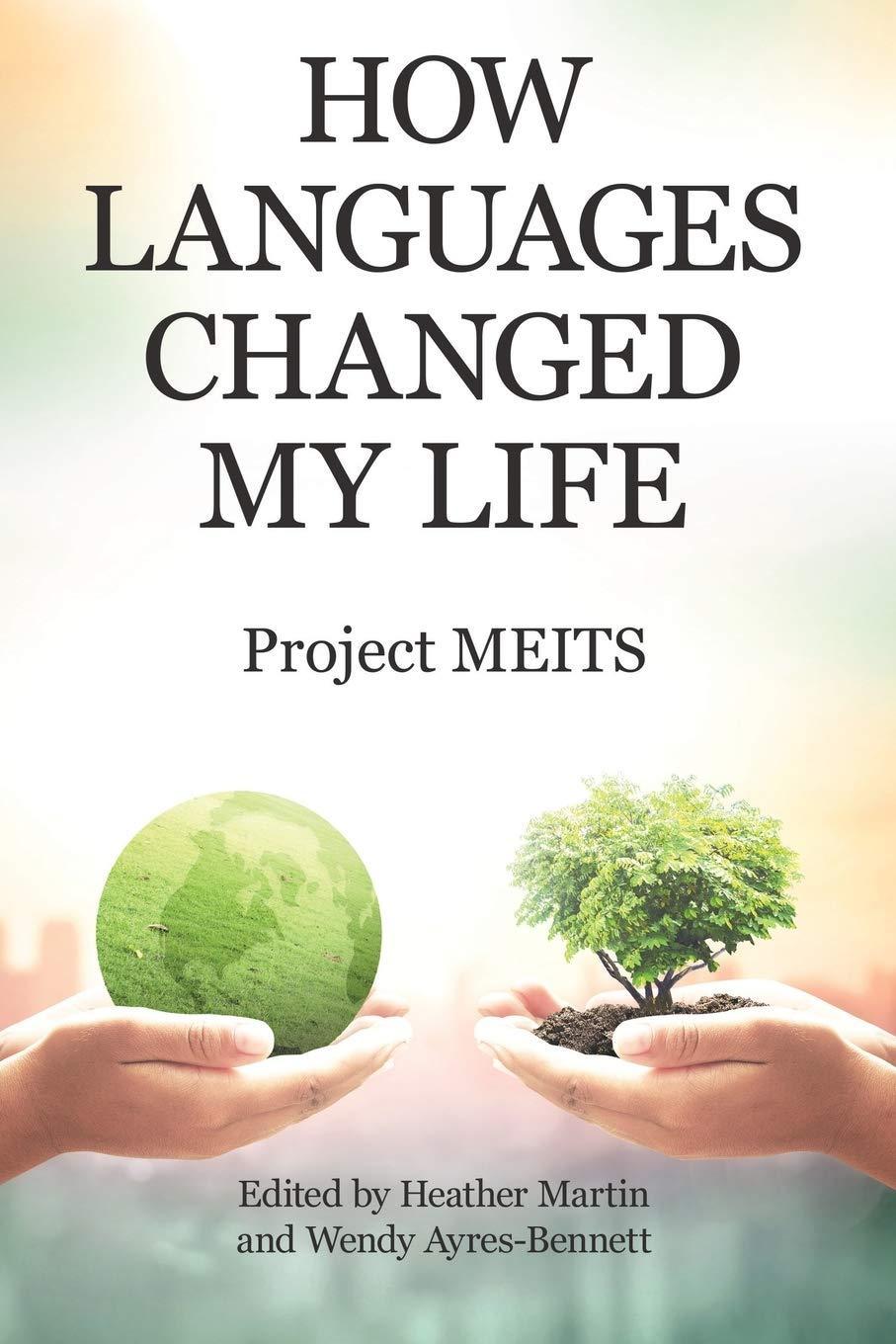
One piece of advice I give to young tennis players is that it’s essential to speak English if you want to be a professional tennis player. Without English, you’re limiting the options as to who can coach you and give you help and advice.
Someone once asked me if I play tennis like I speak, or maybe it was the other way around. I’d never thought about it before, but yes, maybe I do, because I know that when I speak, I sound more certain than I feel. The way I speak is quite emphatic, and usually it takes me less time to get my point across than the other person is expecting.
Which is exactly what happens when I play tennis.
This is an extract from ‘How Languages Changed My Life’, edited by Heather Martin and Wendy Ayres-Bennett. The book can be ordered from the Cambridge University online bookshop (£10 including postage, UK only). It is also available in multiple formats from Amazon or Archway Publishing
Join our commenting forum
Join thought-provoking conversations, follow other Independent readers and see their replies
Comments